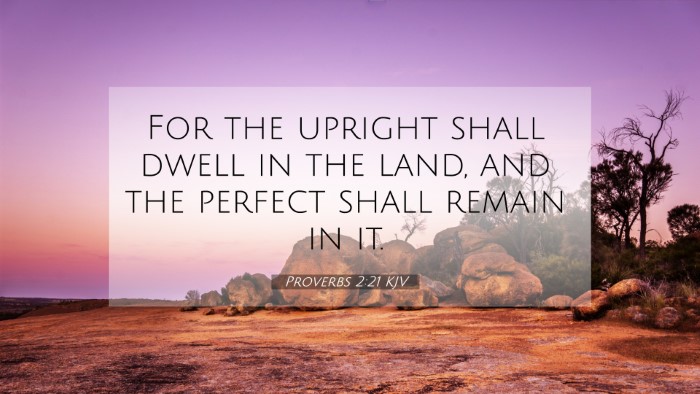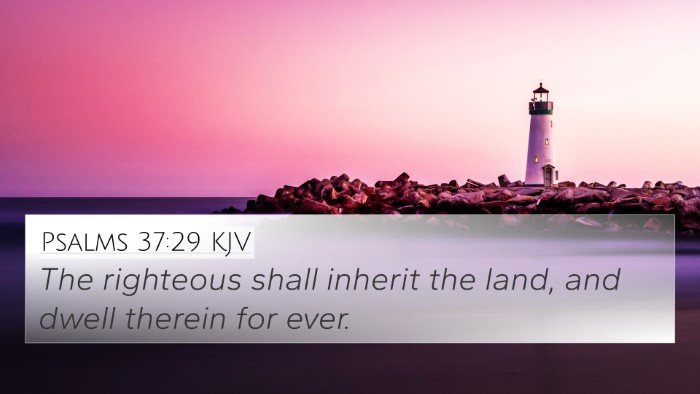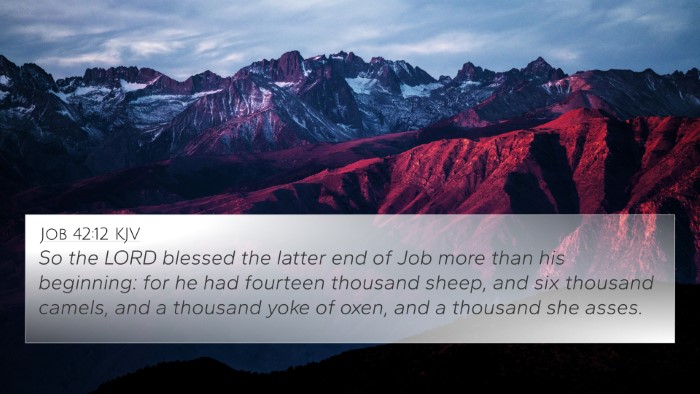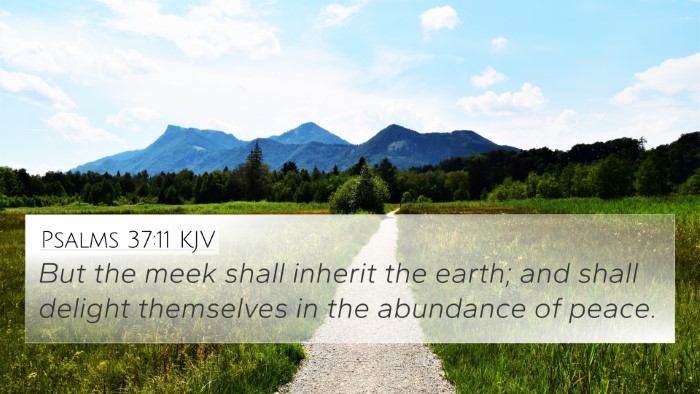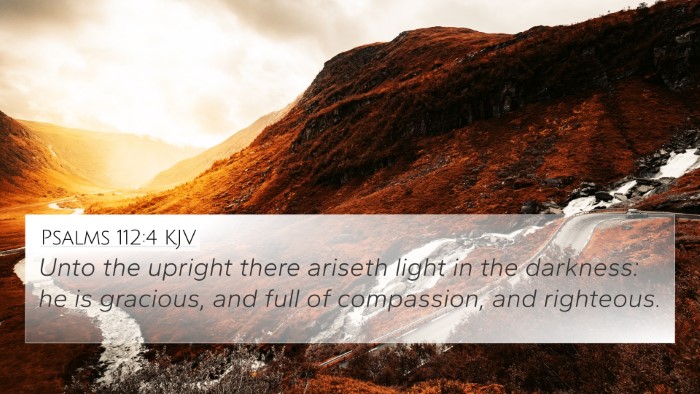Understanding Proverbs 2:21
Proverbs 2:21 states, "For the upright will live in the land, and those with integrity will remain in it." This verse highlights the rewards of righteousness and integrity, emphasizing the connection between moral living and divine blessing. The verse serves as a reminder that those who lead upright lives are not only protected by their moral choices but are also promised a favorable existence in the land.
Insight from Public Domain Commentaries
Matthew Henry's Commentary
Matthew Henry emphasizes the contrast between the righteous and the wicked. He notes that the upright are not just those who possess moral virtues but are actively living them out. Their presence in the land exemplifies God's fidelity to His covenant promises, where loyalty to His ways is met with His provision and blessing.
Albert Barnes' Notes on the Bible
Albert Barnes interprets the meaning of “the upright” as those who are true to their ethical principles. He points out that living in the land represents not only physical survival but also spiritual flourishing. The emphasis is on the longevity of the righteous, suggesting that integrity brings stability and enduring favor from God.
Adam Clarke's Commentary
Adam Clarke elaborates on the concept of integrity, associating it with steadfastness and faithfulness to God’s commandments. He highlights that integrity is foundational for true living; a life steeped in integrity is secured amidst societal uncertainty. Clarke underscores the holistic benefits of righteousness, extending beyond mere survival to encompass divine favor and peace.
Cross-References to Proverbs 2:21
- Psalms 37:29: "The righteous will inherit the land and dwell in it forever."
- Psalms 84:11: "For the Lord God is a sun and shield; the Lord bestows favor and honor; no good thing does he withhold from those whose walk is blameless."
- Proverbs 10:30: "The righteous will never be uprooted, but the wicked will not remain in the land."
- Isaiah 1:19: "If you are willing and obedient, you will eat the good things of the land."
- Isaiah 57:2: "Those who walk uprightly enter into peace; they find rest as they lie in death."
- Proverbs 11:19: "Truly the righteous attain life, but whoever pursues evil finds death."
- Proverbs 12:28: "In the path of righteousness is life, and in its pathway there is no death."
- Matthew 5:5: "Blessed are the meek, for they will inherit the earth."
- 1 Peter 3:12: "For the eyes of the Lord are on the righteous and his ears are attentive to their prayer, but the face of the Lord is against those who do evil."
- Galatians 6:9: "Let us not become weary in doing good, for at the proper time we will reap a harvest if we do not give up."
Thematic Connections
This verse speaks to several themes common throughout the Bible: righteousness, integrity, and divine favor. By examining these themes, one can see the broader message present in both the Old and New Testaments. Such thematic Bible verse connections lend themselves to deeper understanding and inter-Biblical dialogue about how God honors those who earnestly seek to live according to His principles.
Tools for Bible Cross-Referencing
To explore more about how Proverbs 2:21 connects with other scripture, consider utilizing various tools:
- Bible Concordance: A thematic index of verses that allows for the exploration of related scriptures.
- Bible Cross-Reference Guide: A systematic approach to find links between passages, particularly useful when studying similar themes.
- Cross-Reference Bible Study: Methods that enhance understanding through thoughtful comparisons of scripture.
- Bible Reference Resources: Texts or tools that can facilitate a deeper study into biblical connections.
- Bible Chain References: A method of linking verses that illustrate a topic or theme throughout scripture.
Conclusion
Proverbs 2:21 serves as a powerful reminder of the blessings bestowed upon those who live righteously. By cross-referencing this verse with others, one can gain a fuller understanding of the biblical promise of favor and the importance of integrity in one's life. Engaging in comparative Bible verse analysis enhances our comprehension of how these principles manifest in various contexts throughout scripture.


